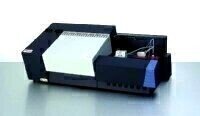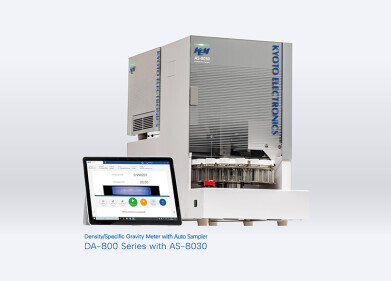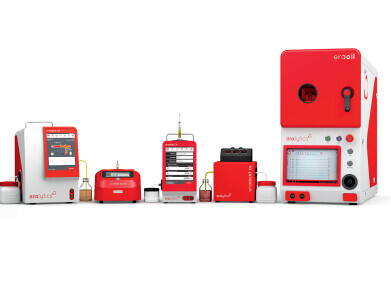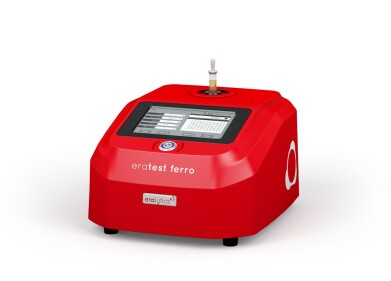Analytical Instrumentation
New Total Sulphur Analyser Provides Accurate Sulphur Analysis for Improved Refinery Efficiency
Jan 11 2008
The unique TTS technology has been developed by researchers at Thermo Fisher in response to new regulations including the ASTM D5453 methodology implemented by the United States Environmental Protection Agency (EPA). These regulations dictate strict limitations on the sulphur content levels in automotive fuels. Ultra-low sulphur diesels are already in use across much of Europe and Asia, and are expected to become a viable alternative to mainstream fuels by 2010. Traditionally, combustion and Ultra Violet Fluorescence (UV-F) have been used for accurate analysis of sulphur in motor fuels. However, even an optimized detector may identify nitrogen as nitrogen oxide, which emits at the same wavelength as sulphur dioxide, resulting in inaccurate analysis. Low Cetane ultra low sulphur diesel fuel is usually spiked with Cetane Improver (2-EHN) to boost the Cetane number. When analysing sulphur in fuel oil using UV-F detection technique this 2-EHN component can cause inaccurate detection of higher sulphur content than truly exists, and consequently has a cost impact when it comes to refinery operation planning.
The novel TTS technology defines the amount of nitric oxide (NO) added to the sample in the furnace, inhibiting the formation of SO3, which cannot be detected using UV-F. This results in higher yield combustion of sulphur dioxide (SO2), which can then be detected using UV-F. Featuring the TTS technology, and configured with a UV-F detection system, the Thermo Scientific TS 4000 analyser is capable of detecting sulphur at extremely low levels in liquids solids and gas samples. The Thermo Scientific NeXYZ liquid autosampler is supplied as standard with all TS 4000 analysers. The NeXYZ Autosampler offers quick and easy automatic sample introduction. It is the first universal autosampler that can be used for solids, as well as direct and indirect injection of small volume hydrocarbons.
Digital Edition
PIN 25.1 Feb/March
March 2024
In This Edition Safety - The technology behind the ION Science Tiger XT - Safety with ammonia and LOHCs as hydrogen carriers Analytical Instrumentation - Discussion on new tribology te...
View all digital editions
Events
Apr 28 2024 Montreal, Quebec, Canada
Apr 30 2024 Birmingham, UK
May 03 2024 Seoul, South Korea
May 05 2024 Seville, Spain
May 06 2024 Riyadh, Saudi Arabia


















